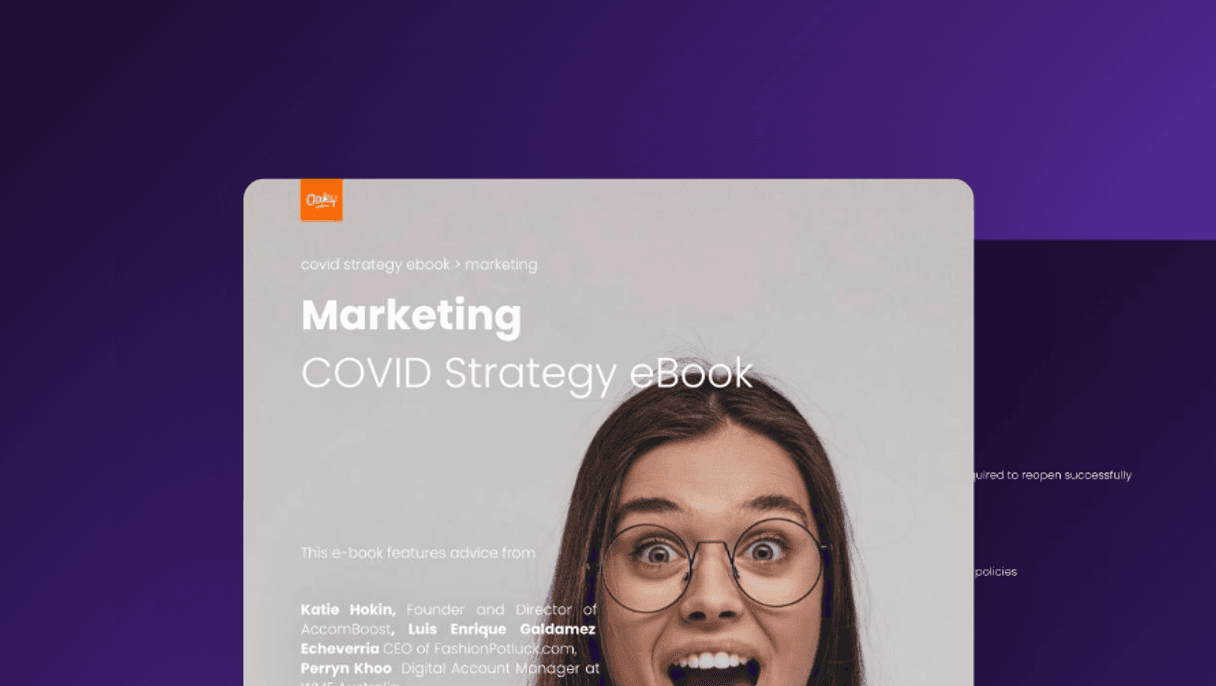Hotel Marketing Strategy: Online performance
Marieke Wisse
•

We are visited once more by our friendly marketing specialists Katie Hokin, Founder and Director of AccomBoost, Luis Enrique Galdamez Echeverria, CEO of FashionPotluck.com, and Perryn Khoo, Digital Account Manager at WME Australia, to talk hotel marketing during market recovery!
This time we are getting into the bread and butter of market recovery operations – online performance. As a fundamental part of your hotel marketing strategy, you should review your online performance.
Online operations might be the one part of the hotel industry left relatively unscathed from the pandemic. Innovative tech platforms continue to provide clever ways to boost your traffic, revenue, and engagement. During the coronavirus affected period, you'll be pleased to hear that several platforms are offering these resources for free.
In addition to these tools, you might want to review your online presence and performance and optimise it before getting into the swing of things again. Read on for some key ways to strengthen the online performance of your hotel. As ever, feel free to share these tips if you find them useful.
- Check that your basic SEO is on point
Make sure your title tags on each page are clearly written and unique. Review your meta descriptions, so they are up to date and accurate for each page. Search for your keywords to see if you are ranking well on the results page and go over your website copy to improve your position if needed. Only a few simple steps can make a big difference here and lead to a traffic boost that supports your business.
- Maintain coherent messaging across all of your platforms
Keep your messages consistent and clear across your website, social media and partner sites. This slow business period is the best time to review all of these platforms, update your information and create a consistent, well-branded online presence. - Analyse data on your site’s traffic and social media
This information is fundamental to building future strategies in light of any changes that may have occurred during the crisis. Use tools like Google Analytics to see how your website traffic has changed. Where do your site visitors come from now? Are they from your city, region or the whole country? Can you see new trends you might be able to leverage in promotions?
Do the same for social media. Check which posts, stories and campaigns gain the most traction and with whom. Use this knowledge when creating new content or promoting your deals and offers.
- List your hotels on all relevant channels
Work through an up-to-date list of sites that are a must to be featured on, like the Siteminder list that Katie suggests in the video below. Make sure your property is present on each, with plenty of up-to-date information and photos. A strong online presence will help you get in front of a wider audience and can lead to more people finding out about your hotel.
- Examine your user journey
A common journey for those planning a holiday will include a browse on a popular OTA, resulting in a shortlist of hotels. From there, a holiday planner might individually Google these hotel names to learn more about each property and check rates. Try following this for one of your competitors to see which channels they appear on and make sure that you haven’t missed any, including meta sites such as Google Hotel Ads and Trivago. Follow this with a search for your own hotel to see your website’s position on the results page and how your listings look. Update them if necessary to ensure your information is accurate and up to date. - Increase your chances of direct bookings
If your hotel site reflects rate parity and offers direct booking incentives, you have a much higher chance of driving bookings via your site. This boosts your bottom line as you won’t have to pay commissions to OTAs.
Do your best to ensure that your photos are up to date, high-quality and look stunning! They are the most powerful tools in seducing would-be customers.
The following tips are drawn from the expertise of Perryn Khoo, Digital Account Manager at WME Australia.
- Review your online messaging
Try another Google search of your property, this time paying attention to how a first-time visitor to your site might view your hotel. Is it accurate to what your brand wants to project? If not, what changes should you make? - Define your USP beyond generic terms
Think beyond terms like ‘luxury’ – consider how attractive your unique selling proposition might be to your target market. If it doesn’t quite align, do some research into what might tip the scales in your favour. - Online reviews are a gold mine for insight
Customer reviews are a great place to learn what stood out about your property to your guests. Read them and highlight the things people love about your property on your website and OTA listings. - Help Google understand your USP
Proliferate SEO-friendly content around your USP, so Google understands that you are associated with whatever that may be (i.e. champagne breakfasts, rooftop swimming). This could mean mentioning your USP in several relevant places on your website, writing a blog post about it or including it in your link texts. - Optimise your Google My Business listing
Update your images regularly and once again, include your specific USP. The more active you are with updating and engaging with your GMB listing, the more Google will favour it with Google Search and Maps users. - Reach out to your customers
Encourage them to leave reviews, mentioning your USP, e.g. ‘We hope you enjoyed our champagne breakfast’. This will make it more likely that they mention your USP in their review, which will only strengthen Google’s understanding that you are associated with what you would like to promote as your signature offering.




